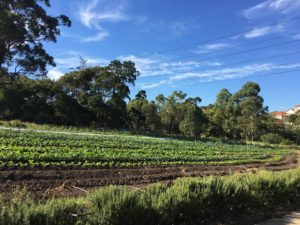It’s been six months since I decided that I should leave the academic job that occupied me for 25 years. A quarter of a century. It’s a long time to be doing something that I never imagined myself doing. I didn’t, as many do now, set out to become an academic. It just kind of happened. I was 8 months pregnant and someone offered me a job teaching radio to undergraduate students. I’d done some secondary and sessional university teaching before this. I quite liked it. Well, I liked the students. But I’d never imagined I’d make a career out of it. I was extremely fortunate that my foray into full-time employment aligned with Paul Keating’s superannuation legislation and that the sector I found myself working paid the equivalent of 17% of my salary into a super account I couldn’t access until now. Extremely fortunate.
Both my partner and I were raised in working class homes. We were taught to value material things. Not in a “I need more stuff” way but in a “this is valuable and I need to look after it” kind of way. People carp on about materialism but really we all need to be more focussed on the material. Throw away consumerism is anathema to the kind of world we need to make – a world that remakes, reuses, recycles and reduces. It was my growing awareness that we need more people on the ground, leading the way towards a more sustainable world that led to my decision to leave paid employment. I already had enough. More than enough. What, I thought, could I give back?
Well, firstly my time. I need to spend (oh, the metaphors) my time doing the most good and the least harm. Live local. Ride my bike. Grow food. Nurture my relationships. I signed up as a volunteer at CERES, in the propagation team, and I love it – helping to grow organic plants that in turn support the work that CERES does in educating people about sustainable energy, community building and organic farming. I also work with a community group who are trying to raise awareness about the importance of composting in reducing the amount of organic waste going to landfill where it contributes to about 50% of the greenhouse gases we need so desperately to reduce. The Compost Depot is made up of 5 women and one man, all locals who met at Darebin Council’s Community Leaders in Sustainability program in 2016.
It’s a new kind of life and I love it.
CERES Joe’s Organic Market Garden on the Merri Creek

